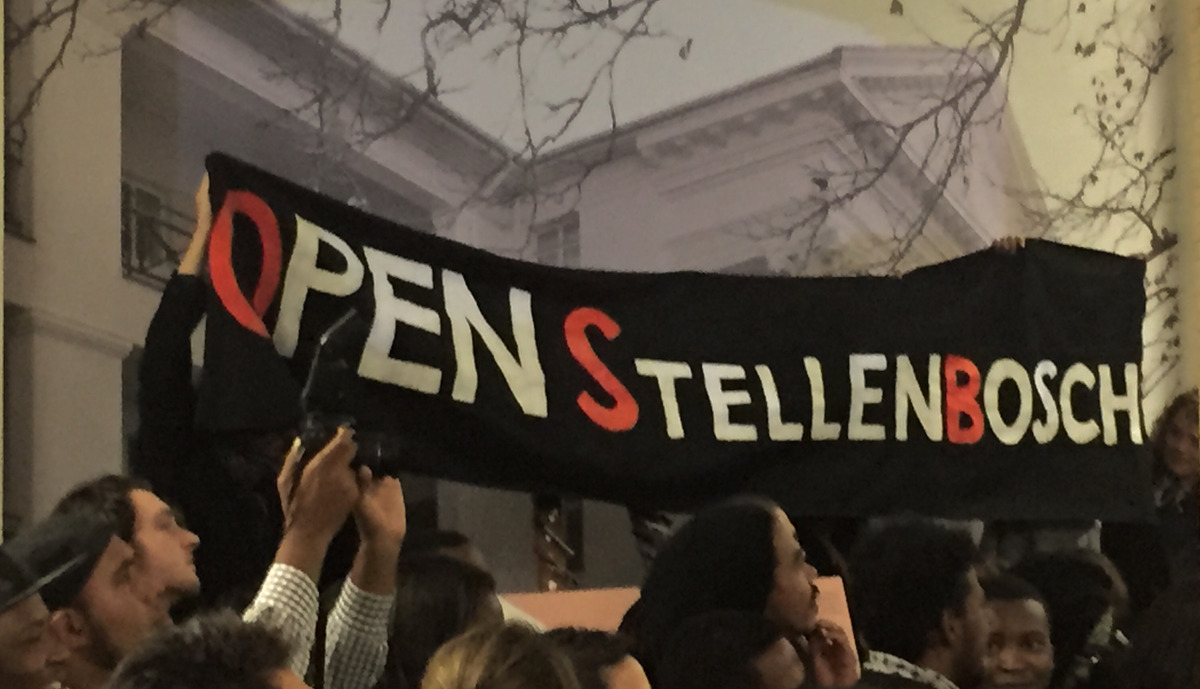The lack of representation in decision-making bodies at tertiary institutions left too much room for marginalised students’ problems to be misunderstood on campuses, Open Stellenbosch said on Monday.
Representative Jodi Williams, speaking at the University of Johannesburg (UJ) Critical Conversation on University Transformation at its Kingsway campus, stated there were many questions surrounding those who drove transformation.
“How do you install this trust these drivers of these transformation projects will act in good faith?”
Making particular reference to the under-representation of blacks of women, Williams said such decision-making bodies are currently dominated by those with “heteronormative and male voices”.
“I think before we can start talking about this platform of engagement, we need to talk about how we get there. We can’t be having meaningful conversations that will yield fruitful [results] without analysing these barriers that us to these conversation.”
The forum was held ahead of a meeting between vice chancellors of higher education institutions and President Jacob Zuma on Tuesday.
UJ student representative council secretary general Mmangaliso Mkhonta bemoaned the fact youth leaving university were not empowered to push the barriers of the transformation agenda.
“I’ve noted our curriculum is equipping us to join the labour force, so we are taught, so that [we] can be able to get a degree for you to be relevant to society, for you to play a part,” he said to the auditorium filled with students, academics, vice-chancellors (VC), and staff.
“We are not empowered as young people to push barriers out and push the whole agenda of transformation.”
The debate on transformation, with curriculum content critical, also spoke about economic imbalances. Those who are pushing for transformation had to be the ones to pay to make it happen.
UJ VC and principal Professor Ihron Rensburg noted while much had changed at UJ itself, much more needed to be done.
What progress they had made was based on university and student leaders having regular conversations with one another.
“I do think that VCs, managers have a duty, it is a duty. I see it as my duty that conversation underpins everything that we try and accomplish here at the University of Johannesburg,” he said.
“It’s not good to say ‘Let’s talk’. The environment is one that says we talk and ‘I will deal with you’. If we say conversations are critical and important, having a safe space [to have those conversations] is as critically important.”
Rhodes University VC Dr Sizwe Mabizela said the current up-surge in debate on tertiary transformation was an “incredible opportunity” that could not be missed.
If South Africa did miss it, history would judge us very harshly.
“The age of innocence is well and truly over. We must create and maintain institutional environments that are positive, inclusive, and firmly supportive,” he said.
“We must attend to the curriculum. I think we have to embrace knowledge from South America, from the rest of the African continent and from the East.”
In his experience, students to be listened to and they want to be heard, so the least those who ran universities could do was to listen to them.
“We should talk about the funding of our education in this country and that is a very issue pertaining to transformation, to change. We need to engage each other,” he said.
“We should always be open minded and be willing to be persuaded and to change our positions based on the quality of the argument advanced.” News24






 WhatsApp us
WhatsApp us 

